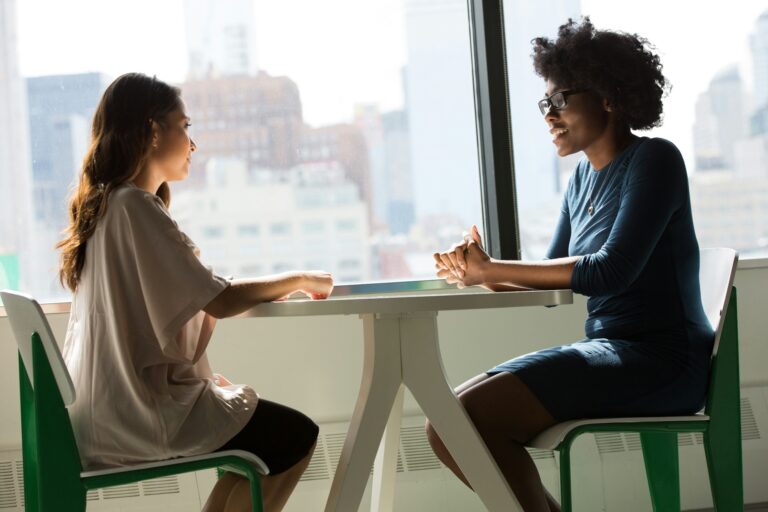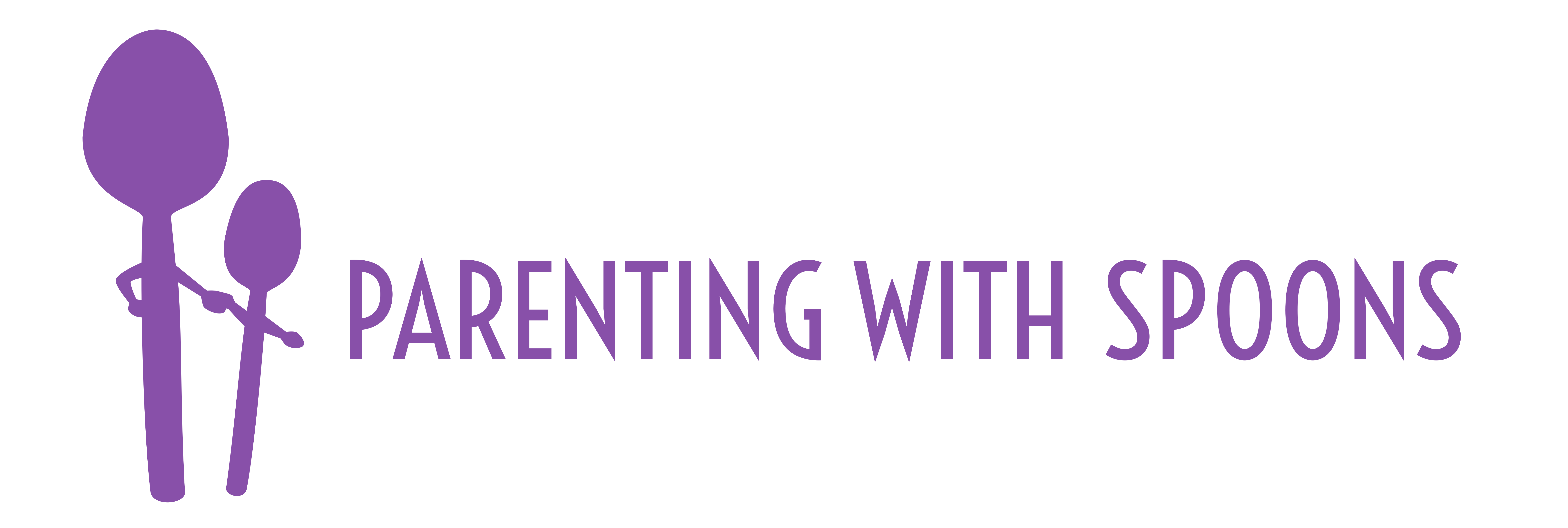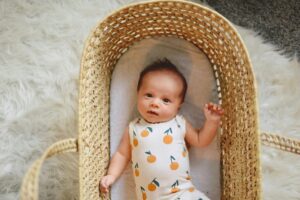Being a parent of a young child and suffering with endometriosis can be a challenge. The pain, the fatigue, the symptoms no one talks about… without adding a toddler into the mix, they can be really tough.
In honour of Endometriosis Awareness Month (or Endometriosis Action Month), here is my endo story, as a parent to an 18 month-old. I’ll touch on diagnosis, fertility, surgery and everyday life with this debilitating condition. Over time, I hope to give each of these areas more time and detail, but I couldn’t let March go by without saying something about this part of my life.
Endometriosis UK are calling for us to talk more about this condition, as a step towards taking action. As I wrote my story, I realised how little I have shared in the past. It’s only been in the last few years that I’ve spoken up more. Throughout my teenage years and early adulthood, my awful periods felt so taboo that I kept them secret. We need to try to change this, because we’re not alone in experiencing this condition or knowing those who do. Parenting with spoons is hard enough without feeling we mustn’t share huge parts of our life.
If you are comfortable with sharing, have been affected by endometriosis, know someone who has, or have any questions, comment below or get in touch with me here.
For support with endometriosis and to learn more, see Endometriosis UK.
Why does endometriosis matter?
Endometriosis is a painful health condition affecting around 1 in 10 women and people assigned female at birth. That’s around 1.5 million people in the UK.
Cells like the lining of the womb build up in other areas of the body (outside the uterus) and then attempt to shed during each menstrual cycle even though there’s nowhere for this blood to go. This can cause plan, inflammation and scarring.
Endometriosis can affect a person in many ways, from the mental health implications to the physical ones. I struggle with fatigue and pain in particular (including when I’m not on my period), as well as symptoms like IBS.
One of the biggest impacts for some people will be on their ability to conceive; I needed laparoscopic surgery and fertility treatment to have our little girl.
So in an attempt to speak more, share more and worry about perceptions less, here’s my story.
My endometriosis story
My periods began when I was 11. The first cycle, I bled for 4 weeks. My mum spoke to our GP and was told it would ‘settle down’. So I waited, but each cycle continued to be prolonged and erratic. I bled heavily and the cramps were very painful. I struggled at school especially as I was embarrassed to change my pads in the bathrooms, so I often leaked which was even more embarrassing.
Eventually, aged 15, after bleeding for 7 weeks straight, I was prescribed the combined pill. This went some way to controlling the timings of the bleeds, if not their heaviness, duration or painfulness. I existed this way for many years, with intermittent GP visits where I was told it might settle or I could try taking the pill packs back-t0-back to reduce the frequency of bleeds.
I stopped taking the pill in my early 20s. I wanted a break from it. It had been in my system for nearly a decade and I wondered how my body would cope without it.
Poorly, it turns out. I returned to the GP who took bloods for the first time. They showed signs of PCOS. I was referred for an ultrasound which confirmed the diagnosis and also found a cyst in my left ovary.
I was sent to a consultant, who told me it was a dermoid cyst and wouldn’t cause any issues. She suggested I remain on the pill for my period related issues, and sent me on my way. There was no planned follow up.
Two years later, now in my mid 20s, I started experiencing awful, daily pain in my abdomen, along with bloating and nausea. It was unbearable. I took two weeks off work and saw my GP repeatedly. This time, I was taken seriously. She took bloods, sent me for a CT of my kidneys and an ultrasound of my abdomen and pelvis. The ultrasound found the cyst had grown substantially and also found something in my uterus that couldn’t be identified.
The consultant this time suggested an MRI to confirm the size and type of cyst, to investigate the uterus and to see whether surgery was required. The MRI confirmed the cyst needed to be removed and also identified possible endometriosis. So I had my first laparoscopy. This phase of treatment was all completed with private medical insurance as the NHS waits were incredibly long and I am lucky to have private cover.The consultant told me they would check for the endometriosis, but not remove it at this stage. I didn’t question it at the time. He was an expert and this was all new to me.
The cyst was removed and the endometriosis confirmed, but left. The uterus abnormality was not found (I suspect this was adenomyosis which I was later diagnosed with). Recovery was tough. I struggled and was eventually diagnoses with fibromyalgia (a story for another day!).
But I didn’t have the intense stomach pain anymore. At my follow-up, we were told we should plan to have children as soon as possible, but we’d got a cruise booked the following year so we decided to wait until after that.
The cruise never happened because of COVID, so we started trying for a baby that year. No luck, which wasn’t a surprise. My cycles were non-existent, ranging from 2 weeks to 10. I would bleed for at least 10 days at a time, and one of the periods I bled for 40 days.
I had at least two confirmed reproductive issues (PCOS and endometriosis) and was referred to the fertility team. They took more blood tests which confirmed I wasn’t ovulating. They performed an ultrasound which confirmed PCOS and also adenomyosis. Then I needed a test to check my fallopian tubes were clear. It was suggested, given my history of endo, that I have this done laparoscopically. Throughout this, we were advised to have sex every other day. Just in case. Sex on a schedule isn’t fun. Sex on a schedule when it hurts because there’s endometriosis deep in your pelvis is even less so.
So I had my second surgery. Some endometriosis was removed at the time, but not the deeper parts. The surgery was abandoned when they discovered my bowel and left ovary were attached with dense adhesions. I assume (though I’m no expert) this is because scar tissue formed where the endometriosis wasn’t removed during the first surgery.
The good news was my tubes were clear. I was started on clomiphene treatment to induce ovulation and by the end of the year I was gobsmacked to find I was pregnant.
Pregnancy was both horrendous and blissful. No endometriosis pain. My fibromyalgia eased. But I was treated for gestational diabetes from 12 weeks and had twice weekly monitoring for reduced movements from 30 weeks. By 40 weeks I was ready to meet my little girl.
Now the birth is a story for another day, as is the fourth trimester. But fast forward a few months and the periods were back. I went straight back on the pill at 5 weeks postpartum in an attempt to avoid completely uncontrolled periods.
I ran packs back to back but never managed past 3 packs before I’d bleed. And the bleeds were bad. Long, heavy, full of clots and painful. I was getting pain with bowel movements and pain when peeing. The pain in my left side was cropping up daily (where my bowel and ovary are stuck together). I was experiencing symptoms like IBS with bloating and urgently needing the toilet. And as usual, sex was painful.
After a couple of cycles where it was clear my symptoms were getting worse, I went back to the GP. More blood tests and a referral to a consultant followed (privately again, because the NHS wait was at least a year). I was sent for another MRI to check whether the bowel adhesions had spread inside the organ. This confirmed endometriosis in my pelvis and around my uterus.
It hadn’t, thankfully, grown into my bowel.
So I had a choice. Surgery now, or wait till later. At the time, with fibromyalgia flares on the rise and a challenging toddler to care for, I decided against the surgery. But I will need regular check-ups to avoid the endo growing into my bowel and complicating matters further.
It’s a difficult choice: medication, surgery, doing nothing. All have their pros and cons. And in the meantime, endometriosis symptoms affect me daily. But it’s a part of my life, one that I have lived with for many years. The diagnosis may have taken more than a decade, but the illness has been with me all that time.
Difficult periods are a part of my life. I have learned to live around them. I don’t make plans when I’m having a period. I have a heated blanket a hot water bottles to help with the pain. I choose when to take a break from the pill so that I am coping with the bleeds at the best possible time for me.
But life, and parenting, carries on around them. I can’t take a break from caring for my toddler just because there’s a stabbing feeling in my left side. I can’t not make her dinner when my hips and pelvis hurt. Parenting carries on. So I allocate my spoons. On those days, I try not to overdo it. Just the bare minimum. A gentle walk to the park so she can play. Easy dinners. And as much time resting as possible.
Why we need to talk more
Taking action against endometriosis and the stigma surrounding it, starts with talking about it. Saying the word. Telling others what we have and how it affects us.
We saw a friend the other day, who we’ve seen fairly regularly for a couple of years. We’ve talked a lot about PCOS, which we both experience, and neurodivergence. We’ve talked about mental health. But when I mentioned I was having a tough time with my endo that day, she looked surprised. “Is that something you live with?” she asked me. How did she not know? Well, it’s simple. I hadn’t told her.
If we don’t talk, people don’t know. If we don’t talk, the stigma, the taboo remains. We need to try to open up where we can. Wear a badge. Post on social media. Or just confide in those dearest to you. Be open and honest where you can.

I’ve talked before about my belief in the starfish principle. One small step at a time. With every conversation, we are spreading the word and encouraging change, however small. We need more research. We need better informed medical professionals. We need access to diagnosis and treatment to not be dependent on how well you know your illness, how strongly you can self-advocate and whether you have private medical insurance. We need our NHS to function in a way that supports women and those assigned female at birth with their health. We need recognition of the impact these conditions have on parents.
So, I encourage you to try, and I will too.
Spoonfuls of love,
Emma




